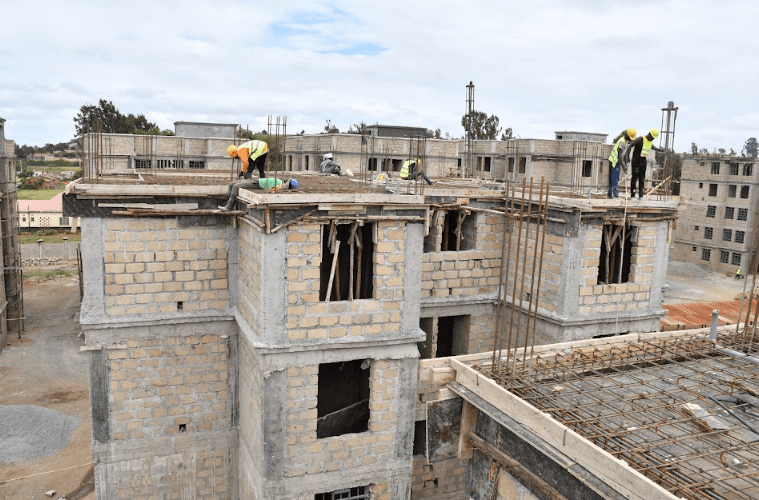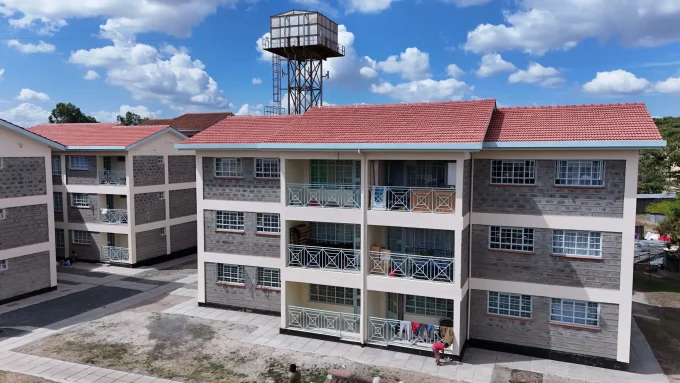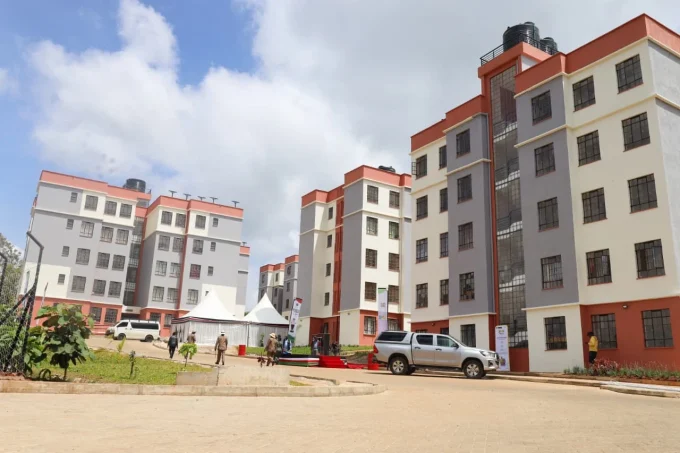The story of John Kipkorir, a 39-year-old renowned welder in Bomet town, is one of hope and resilience. He took every opportunity to stay afloat.
In the sleepy town of Chepalungu, Kipkorir used to make about 3 window panes a day, serving a small segment of the market where he would supply the panes, but the demand was sometimes unreliable, and there were times he could go an entire year without any orders.
With a low demand from residents of Bomet’s towns and villages and the town’s stunted growth, which has been stalled by a lack of money circulation and a reluctance from investors to commit to the area, Kipkorir’s business was unable to break even.
However, the launch of Affordable Housing Programme in Chepalungu presented a windfall for Kipkorir, who was one of many individuals who became busy with work. His business suddenly sprung up as a result of the Housing programme.
Kipkorir, now a major supplier of the Affordable Housing project in Chepalungu, says his business has expanded in ways he could never imagine.
“This programme has really improved my business. I am now busy and my small workshop has been turned into a factory that produces more than I could have imagined. I hope this programme continues so that we can benefit from it,” he said.
The Chepalungu project has 220 units, comprising 60 studios, 20 one-bedroom apartments, 120 two-bedroom apartments, and 20 three-bedroom apartments, all ready for allocation. Interested applicants who have met the 10% requirement have been invited to visit the show houses to view and make informed decisions.
Youth, who were once idle and caused terror in the region, have now found employment through the programme. The economic impact has been felt across nearly all the towns where the programme has been implemented.
Chepkirui Joan, a mother of two, shares a similar story as that of Kipkorir.
She reveals to Business Today how she started selling fast foods and built a semi-permanent eatery near the Emgwen Affordable Housing project, located in Nandi County.
After the death of her husband three years ago, she had dreamed of becoming self-reliant. Thanks to the programme, she now feeds her family and covers her daily needs in the town.
“I never imagined that I would become self-reliant after the death of my husband. I thought it was the end of my life. When this program came to fruition in town, I saw an opportunity to bake mandazis, chapatis, mandazis, Githeri, and other foods for the youth and other people working on the construction sites. We thank the government and call on them to continue with this project so that the low class and the hustlers can get a chance to reap,” she said.
At the Kidiwo Affordable Housing project in Eldoret, Uasin Gishu, we meet Joyce Waceke, a civil engineering graduate, who initially started as a casual laborer but was later promoted to supervisor. She now earns her own income and is able to rent in Eldoret town.
“I am a civil engineering graduate. When I saw the Affordable Housing project being constructed in the Kidiwo area of Eldoret, I applied for a job and accepted any position as a casual laborer. I was promoted to supervisor and now manage other staff within the project. I am grateful to my head supervisor for recognizing my skills and ability to turn things around. This programme has enabled me to pay my rent, and I no longer rely on my parents for upkeep,” said Joyce.

“The area has been turned into an economic venture after decades of dormancy. Once the project is completed, the area will transform, and locals will supply tenants with food, milk, and other goods,” said Mwololo.
Boosting TVETs
The construction projects are expected to improve the demand for skilled labor in the region, leading to increased enrollment in TVET courses, which are now in high demand. According to data obtained from the State Department for Housing and Urban Development, between 120 and 250 youths with skills work daily on these projects. Some of these youth have been able to establish their own businesses, becoming self-reliant and independent, instead of relying on betting or other vices.
According to Kericho County Commissioner Gilbert Kitiyo, in his address to the media, he emphasized the need for youth to participate in the programme to become champions for it. He noted that there has been a reduction in crime rates, gambling, and alcoholism in the county due to the youth involvement in the Affordable Housing programme.
“The youth must take part in this project. So far, in Kericho, there has been a reduction in crime rates, betting, alcoholism, and domestic violence caused by lack of food and other poverty-related vices,” said Kitiyo.
Last December, Lands and Housing Cabinet Secretary Alice Wahome stated that the housing programmes are designed to increase economic activity in localities. Small businesses, such as hotels providing meals for workers, have emerged at construction sites.
“There will be hundreds of tenants moving in, increasing business opportunities as they will need vegetables, milk, and other services from the community,” said the Cabinet Secretary.
Read: Govt Kicks off Process for Kenyans to Acquire Units Under Affordable Housing
>>> Govt Puts Up For Sale 4,888 Affordable Housing Units: Here’s The Full List And How To Buy













Leave a comment